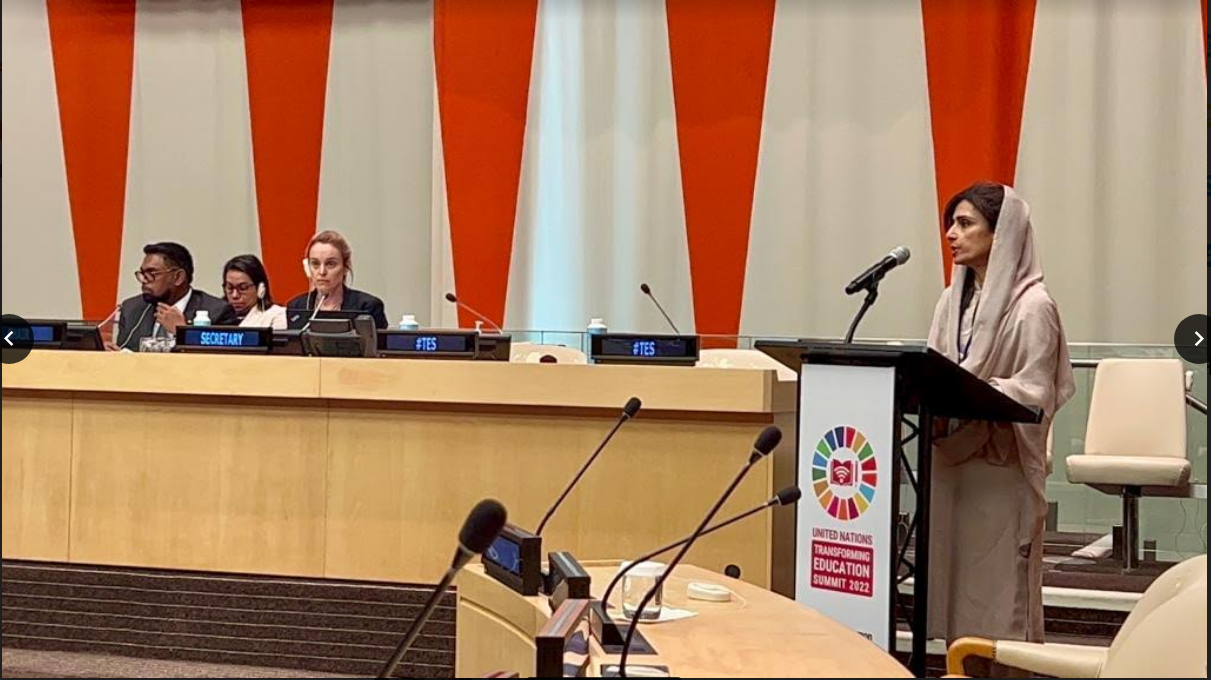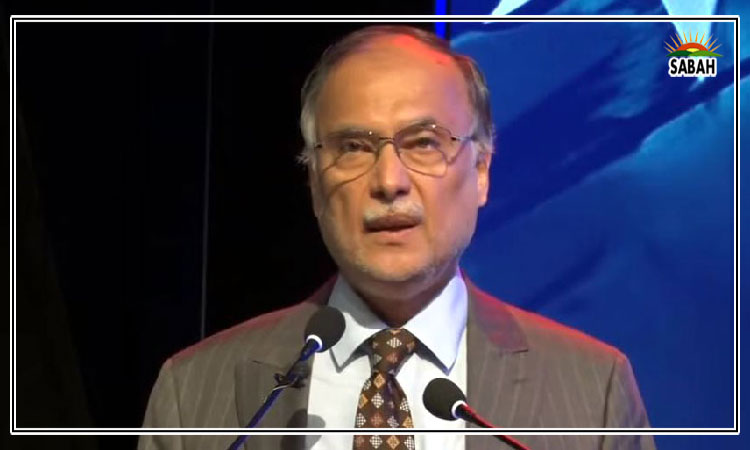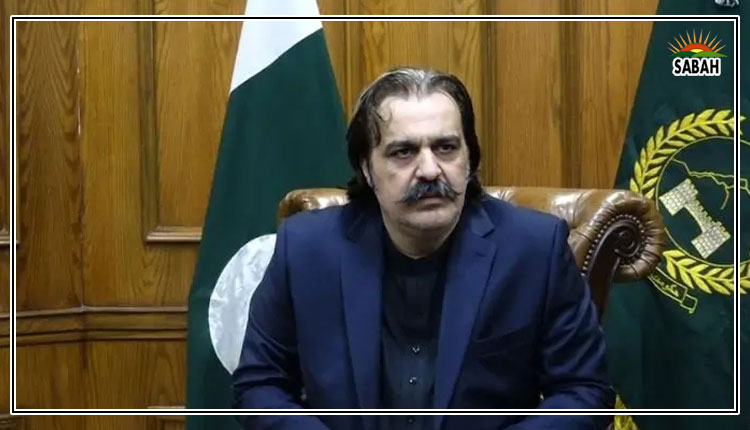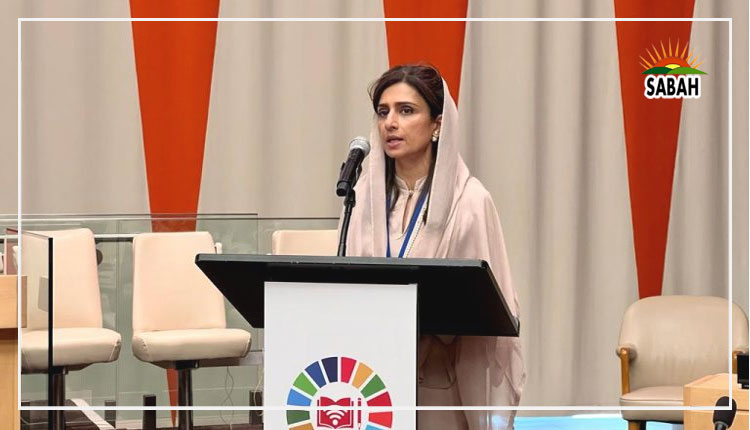Hina Rabbani Khar says the most important investment in the future of any nation is education
NEW YORK, Sep 20 (SABAH): Minister of State for Foreign Affairs Hina Rabbani Khar has said that the most important investment in the future of any nation is education. It is our collective responsibility to create a peaceful and inclusive world, where every child, without discrimination, has equitable access to basic quality education. This is only possible if we comprehensively address the grave issues our education systems face today. The Transforming Education Summit has provided us with a great opportunity to take transformative action for the future we want where every child enjoys the right to education.

The minister was addressing the statement on Behalf of G77 and China during the Transforming Education Summit 2022 in New York.
Hina Rabbani Khar said that as we gather here today, millions are held back from learning. The COVID-19 pandemic, violence, armed conflicts, gender inequality and natural hazards, including climate-induced disasters, are reversing decades of progress and widening inequalities.
She said that even before the pandemic, over half of the world’s children and youth were either out of school or in school and not learning. During the pandemic, the education of over 1.6 billion children and youth – nearly the entire world’s population – was disrupted at an unprecedented scale and speed. The worst impact has been felt in the developing world.
She said that to transform education, we have to first identify and understand the causal factors preventing progress towards education systems which are truly inclusive and equitable. Then, we must undertake concrete actions with a stronger commitment.
Hina Rabbani Khar said that first of all, there is a widening gap between the current state of education and our prospective targets. To truly transform education, there is an urgent need to garner political will, international solidarity and leadership in order to implement high-impact and evidence-based interventions to deliver transformative education for all.
“We need to think “out of the box”. To truly address the learning crisis, there is a need to take a holistic view and go beyond tackling it in isolation. Until the issues of extreme poverty, food insecurity and financial volatility are not addressed, our efforts will not yield optimum results. We must enable the developing countries to eradicate poverty and hunger and achieve all the SDGs through the mobilization of adequate financing; capacity-building; technology access and more equitable structures of trade, investment and finance” Hina Rabbani Khar said.
“Second, inclusion and transformation in education must ensure that we prioritize education as a fundamental pillar of policy at all levels. In our way forward, the role of Member States would remain central, both at domestic level and in considering and discussing, through intergovernmental processes, global initiatives and instruments to transform education” she said.
“Third, digital connectivity and access to digital tools and equipment are now an essential stepping stone towards an effective and modern education experience. Tens of millions in the developing world, especially children, are offline and without requisite hardware and software to avail of digital education opportunities” she said.
Hina Rabbani Khar said that the international community must mobilize resources to close the North-South digital divide, harness the potential of technologies to ensure inclusion and develop digital solutions that ensure the full and equal participation of all learners.
“Fourth, education that lays a solid foundation for life needs to address an increasingly complex and interconnected world faced with the real existential threat of climate change, pandemics, extreme poverty and inequality, rapid technological change, and violent ideologies and conflicts. 69% of employers worldwide struggle to find the skilled workers they need, highlighting the urgency to close the widening skills mismatches” she said.
She said that there is a need to expand demand-driven, industry-responsive and rights-based education and training systems that enable an ecologically sustainable transition and continues reskilling and upskilling for rapidly changing economies affected by digitization, the shift to a low-carbon economy and other mega-drivers of change in our economies and societies.
“Fifth, teachers and educators are key partners in this transformation. The transformation of education requires that teachers and educators be well-trained, professionally qualified, and supported within well-resourced and efficiently governed systems” she said.
“Sixth, there is an urgent need to take affirmative measures at the national, regional and international level to ensure quality education for girls and adopt and strengthen sound policies for the empowerment of all women and girls at all levels” she said.
“Seventh, efforts should be made to prevent the disruption of education and school closures during conflicts and in post-conflict situations” Hina Rabbani Khar said.
“Finally, financing is critical in bridging the digital and resource divide. Even before the pandemic, low and middle-income countries faced an education funding gap of $1.5 trillion dollars a year. This gap has now grown enormously” she said.
Hina Rabbani Khar said that increasing the volume and quality of education financing, particularly in developing countries, is key to tackling this crisis. We welcome the developing innovative financing vehicles and smart approaches which multiply available resources for financing. It is critical that education is an important part of international solidarity efforts, from debt management, concessional finance and stimulus packages to global humanitarian appeals, redistribution of new SDRs and fulfilment of Official Development Assistance, she said.












